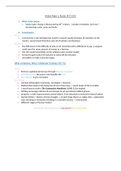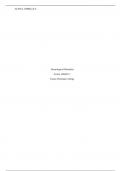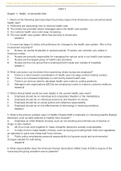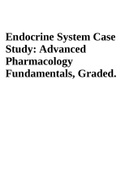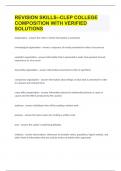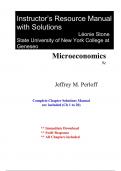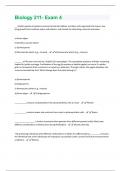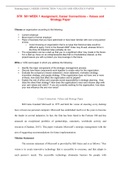1. What is the course:
o Study major change in Russia during 20 th century – includes revolution, Civil war +
dictatorship under Lenin and Stalin
2. Communism:
What:
o Communism is the ideology that wealth is shared equally between all members of the
country. Government therefore own all of industry and business
Problems:
o The difference in the difficulty of jobs is not rewarded with a difference in pay, a surgeon
could earn the same amount of money as a barman.
o The rich would most likely not be willing to give up their wealth
o Its hard to gain control of industry as many will be reluctant
o Unrealistic to make everyone happy
What Is Marxism, Why is it Relevant To Russia 1917-53:
Lenin:
o Remove capitalist democracy through bloody revolution
o Anti-democracy because it only benefits the rich
o Pro violence & pro revolution
Karl Marx:
o German philosopher economist, sociologist + historian
o Radical ideas lead to him being forced out of Germany -> spent much of life in London
o 2 most famous works: The Communist Manifesto (1848) & Das Kapital
o Writing encourage radicals all over Europe to set up Marxist political groups
o property + make it government owned (share), Free education (communist indoctrination)
o Human history = history of class struggle -> at each stage there is a ruling class + oppressed
class resulting in revolution resulting in a classless society -> communism
o Different stages of human history:
FEUDALISM -> CAPITALISM -> SOCIALISM -> COMMUNISM
, THE CONDITION OF RUSSIA BEFORE THE REVOLUTION
What was Russia like; Physical
THE GEOGRAPHY:
LARGE crosses 2 continents (Europe + Asia) covers around 1/6 of world’s land mass
North Russia is frozen most of the year
Sparsely populated
COMMUNICATIONS:
POOR large area to cover with difficult terrain
Few paved roads (countryside), would turn to impassable mud in winter
Main forms of transport = rail + boat, major cities built alongside important river routes
Rail = underdeveloped (equivalent amount of track as Britain), most important rout =e
Trans-Siberian rail which crossed from Moscow to Vladivostok (far east)
INDUSTRIALISATION:
LATE ½ C after west
BUT growing fast -> 1914 Russia = 4th largest producer of coal, pig iron + steel
Late development = factories had modern tech + efficient methods of mass production
Workers: young & male, mostly ex-peasants but 1900 1/3’s fathers worked in industry too
o 1914 -> 2/5 workers in factories of 1000+ workers (easier to organize strikes)
o Worker literacy rate = 2x national average, many receptive to revolutionary ideas
AGRICULTURE:
METHODS INSUFFICIENT (e.g. wooden ploughs) + most farmers subsistence farmers
Debts: due to land repayments cancelled 1905 + peasants prospered better
Stolypin land reforms encouraged production (record harvests 1913)
o Most village fields split, individual households worked strips
Many still worked ex-master’s land + made ‘redemption’ payments to state village bound
SOCIAL DIFFERENCE/STRUCTURE:
Russian + a Russian identity not shared by majority of Pop (40% speak Russian as 1st lang)
Nobles = 1% of pop, owned 25% of all land most lived in St Petersburg/Moscow
Jobs in gov/army largely given based on position in society
Middle classes:
o Growing, more merchants + bankers as industry developed
o Lifestyle = good, large houses, range of foods + extensive cultural life
Professional class also growing, lawyers started to be active in politics
Peasants (1900):
4/5 = peasants (170m) (80% peasants)
Until the emancipation reform in 1861, around 50% of the Empire’s peasants had been serfs
labouring under a feudal type of personal bondage
By 1912, 15% of the pop was urban, many were originally peasants but occasionally would
go back to work on the land
Peasants only freed from legal bondage 1860s
o Late compared to others
o lived + worked on small patches of land they owned or on the land of nobles
o Some = more well off than others, but most suffered long hours + poor quality of life
Industrial proletariat with strong peasantry links = v revolutionary -> contradicted Marx


